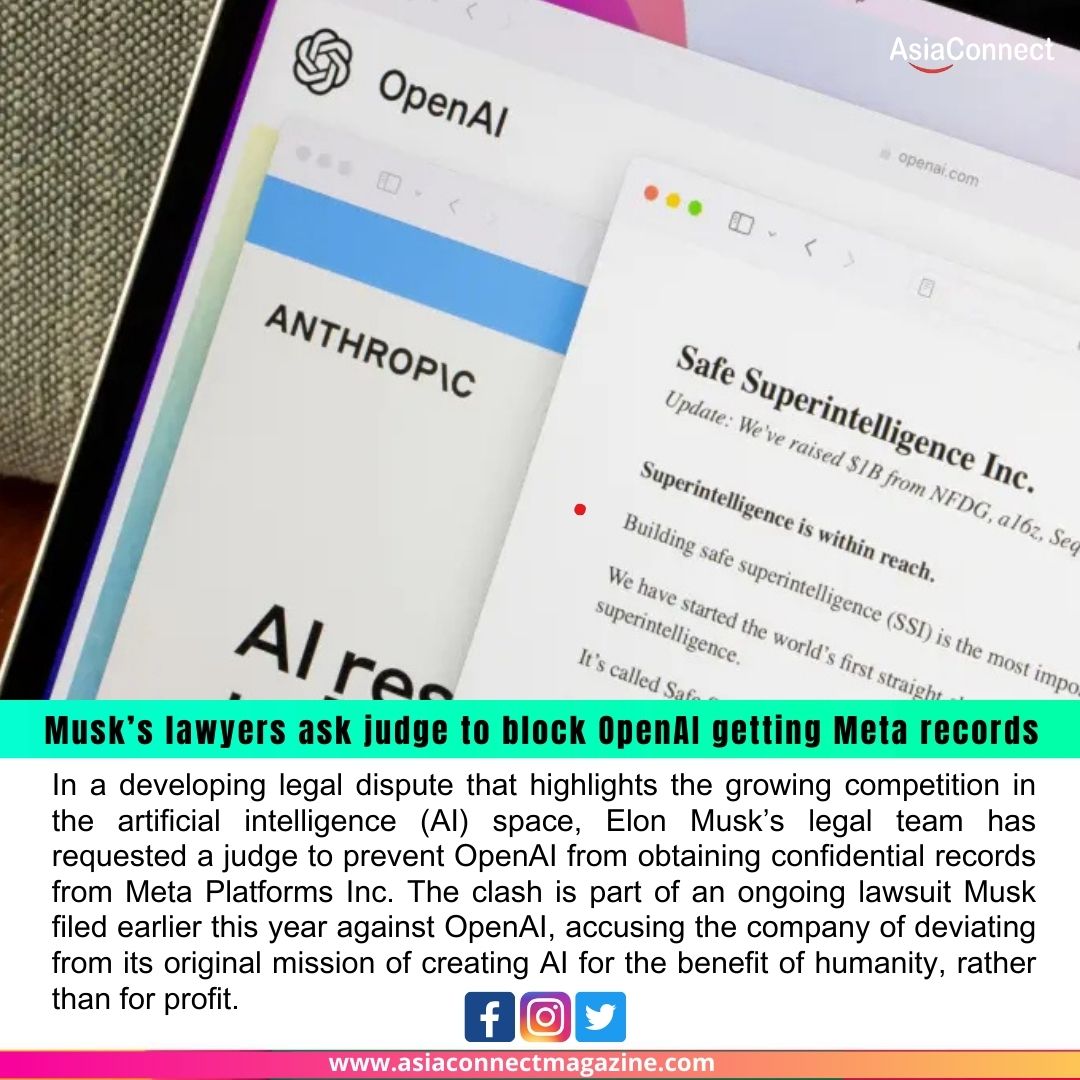In a developing legal dispute that highlights the growing competition in the artificial intelligence (AI) space, Elon Musk’s legal team has requested a judge to prevent OpenAI from obtaining confidential records from Meta Platforms Inc. The clash is part of an ongoing lawsuit Musk filed earlier this year against OpenAI, accusing the company of deviating from its original mission of creating AI for the benefit of humanity, rather than for profit.
The current legal move revolves around OpenAI’s attempt to subpoena Meta for documents that could potentially support its defense. OpenAI claims that these records are relevant to the broader context of AI development and Musk’s competing AI company, xAI. However, Musk’s attorneys are seeking to block this effort, arguing that OpenAI should not gain access to internal Meta communications and proprietary information through a third party.
According to filings in the case, Musk’s legal representatives argue that OpenAI’s subpoena of Meta is overly broad and may breach confidentiality agreements or reveal trade secrets that are irrelevant to the core dispute. They insist that any necessary documentation should be obtained directly from Musk or his company xAI, not through rival tech giants like Meta.
Meta, for its part, has opposed Musk’s motion to block the subpoena. In court documents, Meta stated that if OpenAI believes the documents are relevant to its defense, it should be allowed to pursue them. However, Meta emphasized that the proper route is for OpenAI to request the records directly from Musk or xAI. Meta has shown no desire to become entangled in the ongoing legal battle between two of the most prominent players in AI development.
This legal tug-of-war reflects the high stakes in the AI industry, where tech leaders are fiercely competing to lead the next generation of AI models. Elon Musk, a co-founder of OpenAI, has since distanced himself from the company, especially after it partnered with Microsoft and began commercializing its AI products. In response, Musk launched his own AI venture, xAI, which aims to develop alternative AI systems rooted in transparency and open-source principles.
Musk’s lawsuit against OpenAI alleges that the organization has strayed from its founding principles by becoming a “closed-source” company that prioritizes profits over public good. OpenAI, in turn, has dismissed these claims, citing Musk’s previous support for profit-driven models and his own venture’s commercial ambitions.
As the court deliberates on whether OpenAI can access Meta’s records, the case underscores the broader tensions in the tech world, particularly around data sharing, corporate secrecy, and the future direction of artificial intelligence.
The judge’s ruling on this specific motion could set a precedent for how much access AI firms can obtain from third parties in legal disputes. For now, the legal standoff between Musk and OpenAI continues to intensify, drawing attention from across the technology, legal, and business communities.





